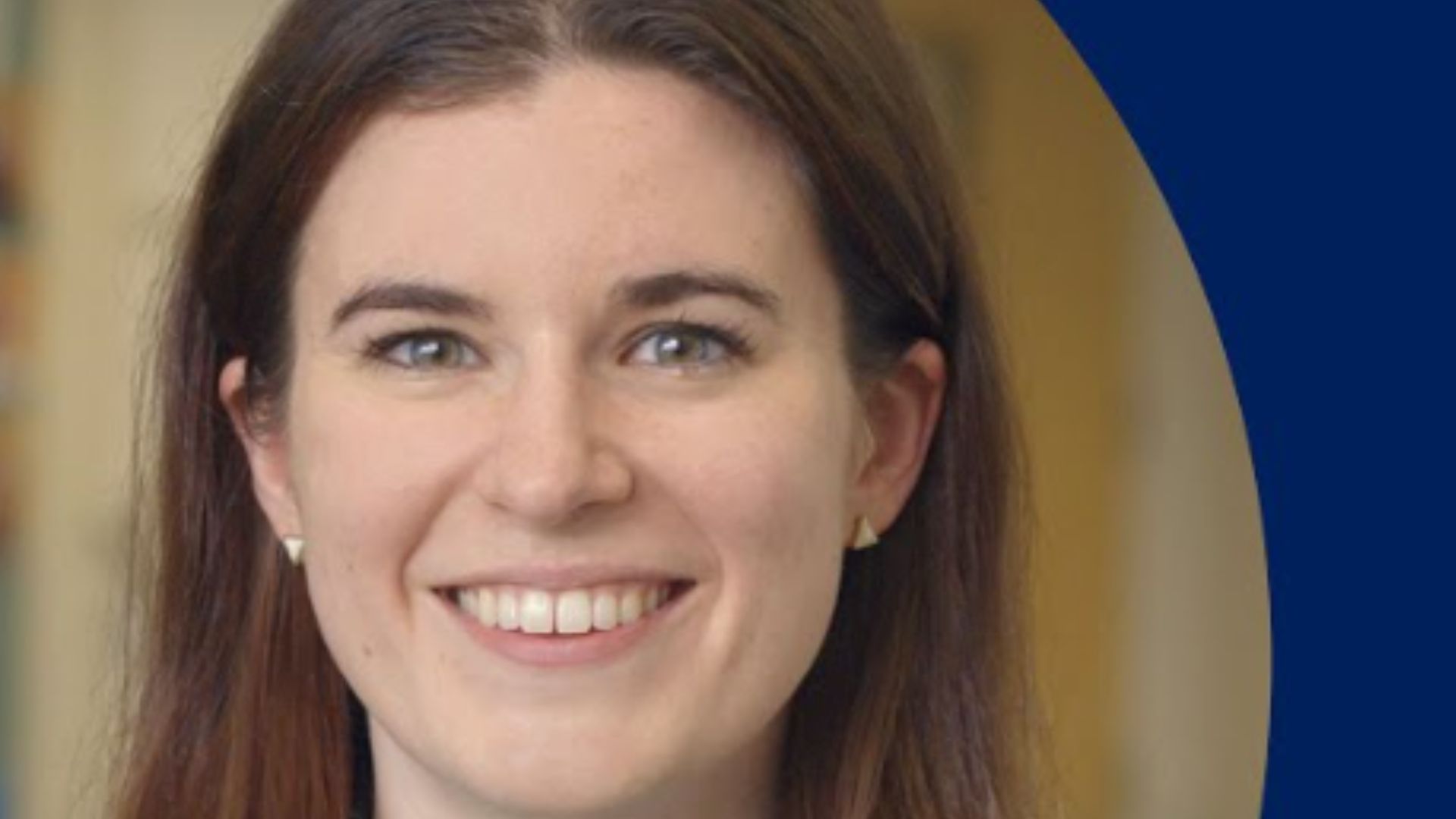Local News
Strong faculty relationships and industry mentorship helped one Rochester graduate discover a unique and fulfilling path in the world of optics

Rochester, New York – When Sarah Bjornland first discovered optics as a high school student, she didn’t expect the subject would shape her entire professional path. But one lesson in a physics class sparked a fascination with how light behaves, and it wasn’t long before that interest turned into something much more—a calling.
Drawn to the University of Rochester’s Institute of Optics for its pioneering reputation—it’s the oldest optics program in the United States—Bjornland enrolled with a curiosity about the field but without a clear sense of direction. “I didn’t know if I wanted to go into research or if I should work in industry,” she recalled. But thanks to strong connections with faculty and industry mentors, Bjornland gradually found where she belonged.
From day one, the institute’s close-knit environment and strong ties to the optics industry offered opportunities to explore real-world applications. However, the journey wasn’t without moments of doubt. Bjornland vividly remembers feeling unsure about whether she was strong enough in math to succeed in a technically demanding field like engineering. One conversation with optics professor James Zavislan became a turning point.
“He told me that I have skills that can’t be put on a résumé,” recalls Bjornland. “What he meant by that was it’s okay that I’m not necessarily the best math student, that I’m not getting A’s in these very difficult classes because I have this other sort of skillset. And he really encouraged me to lean into that more. That was the first time I heard it was okay to be an engineer but also to have these other interests and this other career path to lean into.”
Encouraged by that advice, Bjornland began to see her diverse strengths—communication, leadership, and a careful attention to detail—as assets rather than weaknesses. These qualities would later help her stand out in a competitive job market. Through the Institute’s Industrial Associates (IA) Program, which connects students with companies, universities, and federal agencies, she landed an internship in electro-optics at Elbit Systems of America. That experience gave her valuable insight into how optics functions in a practical, industrial setting.
The IA Program also opened the door to her first full-time role. Before she even graduated in 2017, Bjornland had already accepted a job offer from Optikos Corporation in Massachusetts, where she worked as an optical metrology engineer.
“I got offered a job while I was still here on campus, and so before graduating, I already knew that I was going to go move out to Boston,” says Bjornland. “It turned out to be a great decision because while I was working, I got exposed to a different side of optics. I got to see the business side of optics, which led me to pursue my MBA online.”
Her interest in the broader workings of the optics industry—beyond just the technical challenges—pushed her to seek out new skills in management and operations. That led her back to Rochester in 2020, where she joined Rochester Precision Optics as a manufacturing engineer. As she completed her MBA, she continued to rise within the company. In 2023, she was promoted to assembly manager, a position that blends her technical background with her growing leadership abilities.
“I’m responsible for making sure that we’re meeting schedule and meeting budget, and our technical problems are taken care of by an engineer,” she explains. “But I’m not necessarily doing that day-to-day engineering myself anymore. So, I was able to get my optics degree, understand the technical problems, and work in that for a while. Now I have this unique experience where, as a manager, I get to see what’s going on and help drive that, while not necessarily doing all of the work myself.”
Now, Bjornland is helping to guide the next generation of optics students, just as her mentors once guided her. She teaches in Monroe Community College’s optics systems technology program—a program chaired by another Institute of Optics alumna, Alexis Vogt. The full-circle moment underscores the impact of mentorship and the power of finding your niche through the support of a strong academic community.
From unsure student to confident engineer, manager, and educator, Bjornland’s story shows how valuable faculty guidance and industry partnerships can be in shaping a fulfilling career. By trusting her instincts and leaning into her strengths, she carved out a space where she didn’t have to fit a single mold—she could build one of her own.

-

 Local News12 months ago
Local News12 months agoNew ALDI store close to Rochester to begin construction in late 2025 or early 2026
-

 Local News12 months ago
Local News12 months agoRochester Lilac Festival announces exciting 127th edition headliners
-

 Local News10 months ago
Local News10 months agoCounty Executive Adam Bello and members of the county legislature celebrate exceptional young leaders and advocates at the 2025 Monroe County Youth Awards
-

 Local News10 months ago
Local News10 months agoThe 2025 Public Market Food Truck Rodeo series will begin this Wednesday with live music by the Royal Bromleys